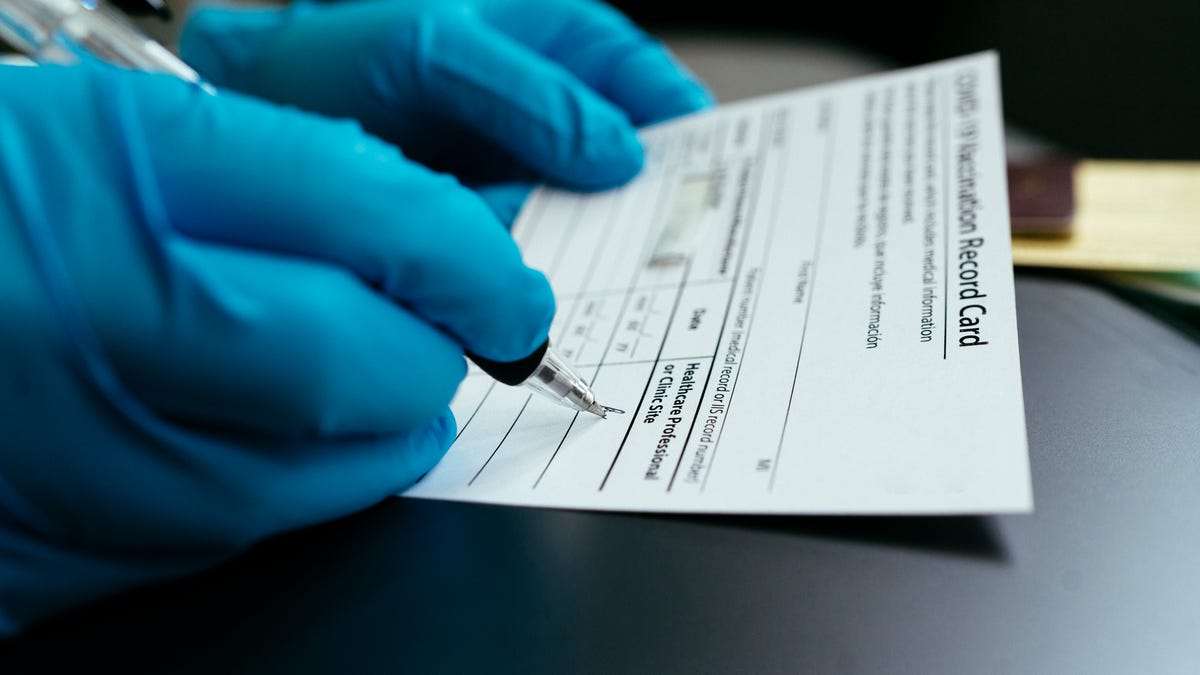CDC Signs Off on Second COVID Booster for Adults 50 and Up
Immunocompromised people and those who got two doses of Johnson & Johnson's vaccine may also get an extra shot.

All adults age 50 or older can get a second booster of Moderna's and Pfizer and BioNTech's COVID-19 vaccines, at least four months after their first booster. The US Centers for Disease Control and Prevention endorsed the extra shots Tuesday.
People age 12 and older who are immunocompromised may also get a second booster, the CDC says, as well as adults who've received a primary vaccine and booster (second) dose of Johnson & Johnson's vaccine.
The CDC's endorsement came late on Tuesday after the FDA authorized second boosters of Pfizer's and Moderna's vaccines for adults age 50 and older people who are immunocompromised.
"Boosters are safe, and people over the age of 50 can now get an additional booster 4 months after their prior dose to increase their protection further," CDC Director Dr. Rochelle Walensky said in a statement. "This is especially important for those 65 and older and those 50 and older with underlying medical conditions that increase their risk for severe disease from COVID-19 as they are the most likely to benefit from receiving an additional booster dose at this time."
All adults who are eligible can receive either Pfizer and BioNTech's COVID-19 vaccine or Moderna's COVID-19 vaccine four months or more after their first booster shot. This includes adults who originally got Johnson & Johnson's vaccine, who may benefit from mixing COVID-19 vaccines, according to a CDC report published Tuesday.
Teens or kids as young as age 12 who are immunocompromised are authorized to receive a second booster shot of Pfizer's vaccine at least four months after their first booster. For some people who are immunocompromised, this means they'll be able to get a fifth shot.
"Current evidence suggests some waning of protection over time against serious outcomes from COVID-19 in older and immunocompromised individuals," Peter Marks, director of the FDA's Center for Biologics Evaluation and Research, said in a press release. "Based on an analysis of emerging data, a second booster dose of either the Pfizer-BioNTech or Moderna COVID-19 vaccine could help increase protection levels for these higher-risk individuals."
The news comes as BA.2, or "stealth omicron," makes up over half of COVID-19 cases in the US, according to CDC data. While data from other countries suggests BA.2 doesn't cause more severe disease than original omicron, it is more contagious and raises concerns about another COVID-19 surge. While health officials have debated the necessity of COVID-19 booster shots, many argue that as immunity wanes, boosters prevent severe disease and death in people most vulnerable to COVID-19.
There is also the question of funding for COVID-19 treatments and vaccines, which the Biden Administration has warned is running low. At a White House COVID-19 Response Team Briefing last week, coordinator Jeff Zients said that while the US has enough vaccine supply to vaccinate older adults and people who are immunocompromised, it won't be able to fund boosters for all Americans without more funding from Congress.

